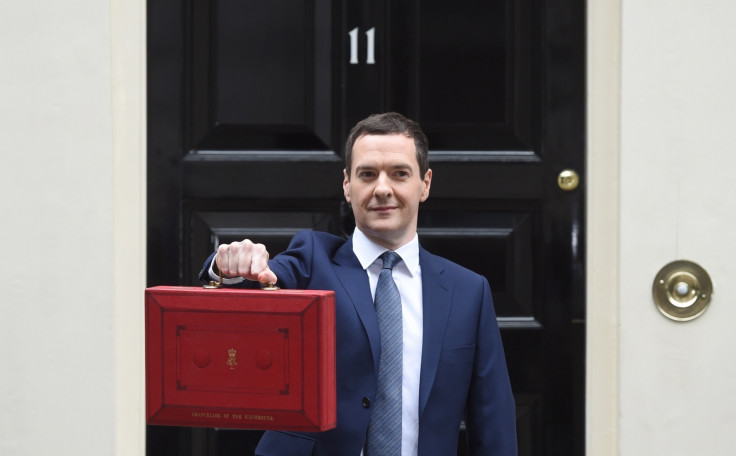Rise of the bleeding heart Conservative: Did Ed Miliband lose the election but win the argument?

After decapitating Labour at the general election when it won an unexpected majority, the Conservative party's policy vultures are now circling the corpse.
While Labour struggles to resuscitate itself with the defibrillator of a leadership election, the Tories have their claws poised to yank the heart out for their own political purposes: bleeding heart conservatism.
From increasing low-paid workers' wages to introducing same-sex marriage, more levies for the banks to an end of the non-domicile tax status, and cutting tax relief for landlords to closing the gender pay gap, bleeding heart conservatism is on the march as a wounded Labour party retreats.
It is yet another attempt at rebranding by the Conservative party, and we have seen it before. Who can forget 'hug-a-hoodie', 'husky-sledding environmentalism' and 'the Big Society'? All meant to soften the hard edges of the Conservatives – once branded "the nasty party" – and create a compassionate conservatism. Only now, with Labour in disarray and a growing UK economy, is the image catching on.
Chancellor George Osborne lurched towards the centre-ground in his summer budget. He called it "a plan for working people", referencing the "one nation" idealism of the old reformist Tory prime minister Benjamin Disraeli.
The most significant part of this was the introduction of what Osborne calls the 'National Living Wage' (NLW) - a concept hijacked from a left-leaning, progressive campaign. It replaces the minimum wage, and by 2020 will hit £9 an hour for the over-25s. It was dubbed a political masterstroke that left a disjointed Labour party struggling to stay standing on the rug that had just been pulled from underneath its feet.
Prime Minister David Cameron, who has struggled to bat away accusations that he has a "woman problem" because of a lack of senior females in the Conservative party, came out swinging on the gender pay gap. He promised to "cast sunlight on the discrepancies and create the pressure we need for change, driving women's wages up" by forcing companies to reveal pay data.
"The Tories know that there's an enormous political prize if they can convince the electorate that they're not just an economically competent party, but a compassionate enterprise too," wrote the conservative commentator Tim Montgomerie in The Times a day after the budget.
Clare Foges, Cameron's former speechwriter, in the same newspaper penned an eviscerating attack on top bosses pay. Foges called for intervention by the Conservatives to clip boardroom pay because the gap between bosses and workers is "gross and growing". She suggested having workers sit on remuneration committees.
"There are compelling reasons for Conservatives to act. The first is that it makes capitalism look terrible," she wrote.

This is the rise of the bleeding heart conservative: aspiration, opportunity, choice, freedom, reward, work, family, community. An attempt to mould a new image for the party as on the side of aspirational low- and middle-income working families rather than the bosses, the bureaucrats and the political establishment.
But there is a problem for the party in convincing the electorate that it is compassionate: its claim seems hollow. When you take into account tax credit and other welfare cuts, the NLW proposed is not meaningful because the lowest earners are still worse off than before. What is more, there will be 60,000 fewer jobs created as a result of higher costs to business.
Cameron's pledge to force companies to publish their average wage for male and female employees to fight the gender-pay gap is vague. What type of average? Will it be on a role-by-role basis? Or will CEOs and cleaners be lumped in together? The consultation will, hopefully, answer these questions – otherwise it will all be meaningless.
And the Conservatives are still committed to billions of pounds of spending cuts. They are hitting some of society's most vulnerable the hardest, such as the disabled. Yet Conservatives are dogmatically protecting pensions – and so many Tory voters – at the heavy expense of the young and low-income families. All the while, Osborne is cutting corporation tax even further – despite it already being nearly the lowest in Europe – and inheritance tax for the wealthiest heirs.
"We are saying to working people: our new national living wage will ensure you get a decent day's pay, but there are going to be fewer taxpayer-funded benefits," wrote Osborne in The Guardian, defending his NLW and further cuts to welfare.
"Lower welfare in return for a national living wage is widely recognised as a fair deal. It has been proposed on the left as well as the right. Welfare reform is not just about saving money. It's about transforming lives, and social justice. This is the new centre of our politics. All those who call themselves progressives should join us."
The question now is whether Labour will be able to elect a leader competent enough to recapture the centre-ground currently being ceded to the Conservatives. To point out the contradictions between the Conservative government's narrative and its reality.
If the dull, forced motions of the current Labour leadership election are anything to go by, it looks like we are in for another dose of bleeding heart conservatism in 2020.
© Copyright IBTimes 2024. All rights reserved.






